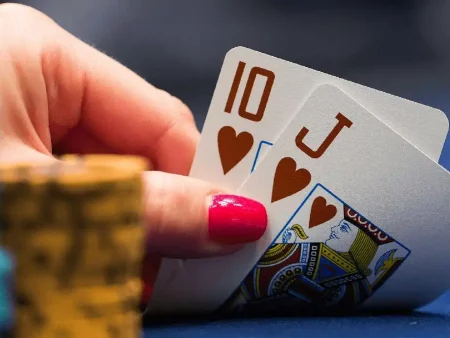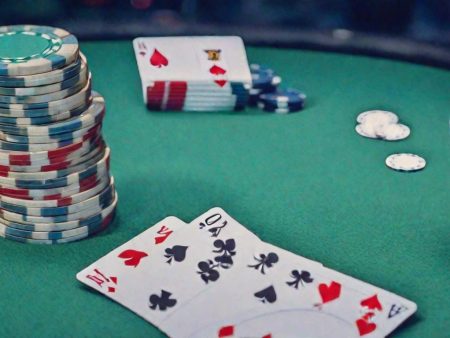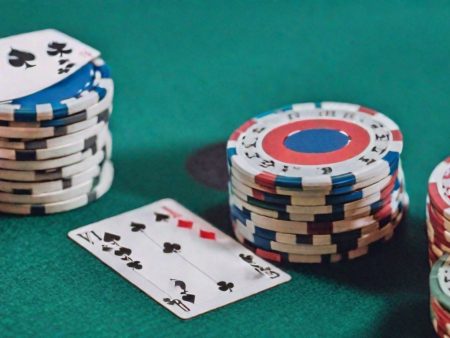In poker, the term “blockers” refers to a player’s pocket cards that reduce the likelihood of certain hands being made on the table. This is because, with specific cards already in your hand, the probability of your opponents drawing those same cards is lower. Blockers can influence a player’s strategy and tactics at various stages of the game.
How Blockers Can Affect Your Poker Decisions
If you’ve chosen to play at an online casino with live dealers and are learning poker rules, it is crucial to understand how blockers work. When used correctly, they can make your game more informed and accurate. Therefore, knowing how to incorporate blockers into your strategy is an important part of playing poker successfully.
Here are some examples of blockers and how they can impact your poker decisions:
- Pair of Queens (QQ): For instance, if you hold a pair of Queens (QQ), it means that two out of the four Kings are already in your hand. This reduces the chances of your opponent having Kings, which lowers the likelihood of them having a strong hand, like a pair of Kings (KK). This, in turn, increases your chances of winning and can influence your betting and bluffing decisions.
- Board Cards and Opponent’s Range: When there are already cards on the table, blockers can help you gauge the likelihood of certain hands in your opponent’s range. For example, if two Aces are already on the table and you hold an Ace, it decreases the chances that your opponents also have an Ace. This shift in probabilities is important for adjusting your betting strategy, as you might conclude that your chances of winning have increased.
- Bluffing with Blockers: Blockers also play a significant role in bluffing. If you hold cards that block certain strong hands, your opponents are less likely to possess those hands, making your bluff more convincing. It may appear that you have a stronger hand, thus giving your bluff a higher chance of success.
It’s important to understand that knowing what blockers are and applying them correctly in practice are two different things. Effectively using this technique requires a solid understanding of probabilities and poker strategy. Blockers may not always be the deciding factor in your decisions, but they can certainly influence your actions at the table.
Read also: UTG in poker – peculiarities of position and hand spectrum.
Examples of Blockers in Different Poker Variants
Modern gambling platforms offer a wide variety of poker formats. Experienced players recommend studying the ratings of online casinos and their offerings to find the most suitable platform for you.
Blockers are a technique that can influence a player’s decisions at the poker table. They are often used to simplify decision-making and even help with successful bluffs. Let’s look at a few examples of how blockers are applied in different situations:
- No-Limit Texas Hold’em: Alex holds the King of Spades and Queen of Spades. The flop reveals the 10 of Diamonds, 7 of Spades, and 2 of Spades. At this point, Alex has nothing but a high card, but he holds blockers to a potential nut flush (a flush with spades). Alex knows that the chances of his opponent having a flush are slim, since he has two of the four spades. He decides to bluff, removing the possibility of a flush and increasing the likelihood that his opponent will fold.
- Omaha Poker: In Omaha, players are dealt four hole cards, so the use of blockers becomes even more important. For example, if Victor holds 9 of Diamonds, 8 of Diamonds, 7 of Clubs, and 6 of Clubs, and the board shows 10 of Clubs and 9 of Clubs, he has a top pair. However, with a pocket Ace and two pocket Queens on the table, the chances of one of his opponents holding a stronger hand are greatly reduced. In this case, blockers help Victor decide to continue playing by excluding stronger hands in his opponent’s range.
- Using Blockers to Diversify Strategy: In Texas Hold’em, blockers can help diversify a player’s strategy. For example, if a player holds two Queens and a pair of eights appears on the flop, it means that one of the remaining Queens is blocked, reducing the chance of an opponent making a set (three of a kind). You can use this information to bet and even raise, leveraging your blockers to pressure opponents into folding their potentially strong hands.
Practical Application of Blockers at Different Stages of the Game
- Preflop Stage: During the preflop, when card selection can heavily influence the outcome, it is essential to consider blockers, particularly when assessing your opponent’s range. For example, holding pocket Aces and broadway cards can enhance your hand against a tight player, as your blockers reduce the likelihood of them holding a strong hand. Against looser players, preflop blockers may be less significant, as they tend to play a wider range of hands, including many marginal ones.
- Flop Stage: On the flop, especially when considering the possibility of a flush, blockers play a significant role in decision-making. If you have two cards of the same suit and the flush hasn’t yet completed by the river, it increases the likelihood that your opponent is also drawing to a flush. In this case, your blocker makes it less likely that they will fold on your river bet. For example, if there are already three suited cards on the board and you hold an Ace of the same suit, you have a blocker to an opponent’s potential nut flush. You can use this knowledge to your advantage by forcing them to fold weaker flushes or marginal hands.
- Facing Aggression: If you have two pairs on the flop and face aggression from an opponent on a dry board, which often suggests they may have a set, knowing that you have blockers for two of the three possible sets allows you to play more confidently, as the chance of them holding a set is lower.
- Top Pair with Blockers: If you have a top pair on the board and two of the four cards of that pair are in your hand, it significantly reduces the chances of your opponent also holding the same top pair. You can then apply various strategies, such as calling or raising, depending on the opponent’s style of play.
Read also: Timing in poker – how to detect and avoid becoming a victim of cheating.
Using blockers effectively requires a solid understanding of the game and your opponents. Misapplying blockers can lead to poor decisions, but when used correctly, they can significantly improve your strategy and help you make more informed decisions at the poker table. If you are looking for an online casino with a minimum deposit of $10, please follow this link. You can find more information about the gambling industry on our blog. Was this article helpful? Learn more secrets of gambling – visit the online casino blog and read fresh articles on strategies, bonuses, and the best casinos!






